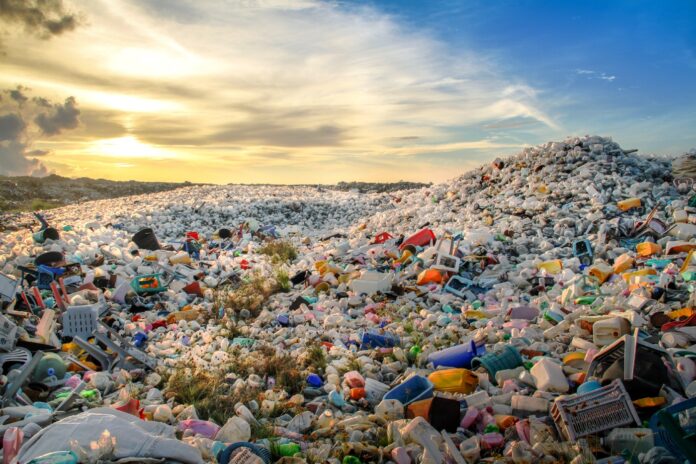For a country like Pakistan facing a mammoth current account deficit (CAD) of $15.2 billion in the first eleven months of the financial year 2021-2022, the natural instinct would be to export whatever it can to lower that deficit and support the precarious position of our central bank reserves. Guess what? We are importing waste! And tonnes of it! Which wouldn’t be a bad thing if we had the solid waste management plants and enough capacity to recycle them, use that recycled waste in our production and export it. But for a country which produces 30 metric tonnes of solid waste, out of which only 50% is properly collected, and most of it being dumped into landfills, to import waste is adding fuel to the already imminent environmental catastrophe.
Climate change is a manifestation of colonialism,
and the developed world dumping its waste in the developing world
is just the tip of the iceberg.
This issue came into the limelight last week during a meeting of the Senate Standing Committee on Climate Change, where the senior joint secretory briefed the committee that the country imported around 80,000 tonnes of solid waste annually by developed countries such as the United States, United Kingdom, Saudi Arabia, the United Arab Emirates, Italy and so on. Even worse, 40 No-Objection Certificates (NOCs) were issued to private parties’ previous year for the import of solid waste. The senators were clueless! As a desperate measure, the ministry suspended those NOCs, till the infrastructure is improved.
The committee meeting was called to approve the first-ever National Hazardous Waste Management Policy, 2022; a policy aimed at regulation of hazardous waste in the country through a coordinated National Action Plan. The Minister for Climate Change Senator Sherry Rehman said, “Before Pakistan becomes a dumping ground for our own and the world’s hazardous waste, the government has gone ahead and made a detailed national policy to manage hazardous waste,” while terming the worsening waste management situation a challenge for Pakistan.
This policy lays the foundation of a framework which calls for coordinated efforts between the centre and the provincial governments to strengthen the infrastructure, implementation of policies and governance, and especially to comply with the commitment to the Paris Agreement by reducing the greenhouse gas by 20% by the year 2030. This requires recognition of the problem, allocation of sufficient funds and a national will, alongside a global one to tackle this monster posing a threat to our existence!
The Global Climate Risk Index has ranked Pakistan as the 5th most vulnerable country to the climate change with the human cost of around 10,000 lives and economic cost of around $3.8 billion over the past 20 years, with things only to get worse in the times to come, with our future at stake. This is despite the fact that Pakistan does not contribute in the same proportion to the global climate change adversity! Climate Change crisis in the third world is the creation of the first world just as the first world (in terms of development) is the creation of the third world. Climate Change is a manifestation of colonialism, and the developed world dumping its waste in the developing world is just the tip of the iceberg.
The world needs immediate action on the issue, beyond promises, to alter the foundations of our economies and our lives fundamentally by investing heavily in green energy, green finance, responsible production and consumption, through projects aimed at the indigenous life, and through mass education regarding the future of our coming generations, and our mother Earth.




